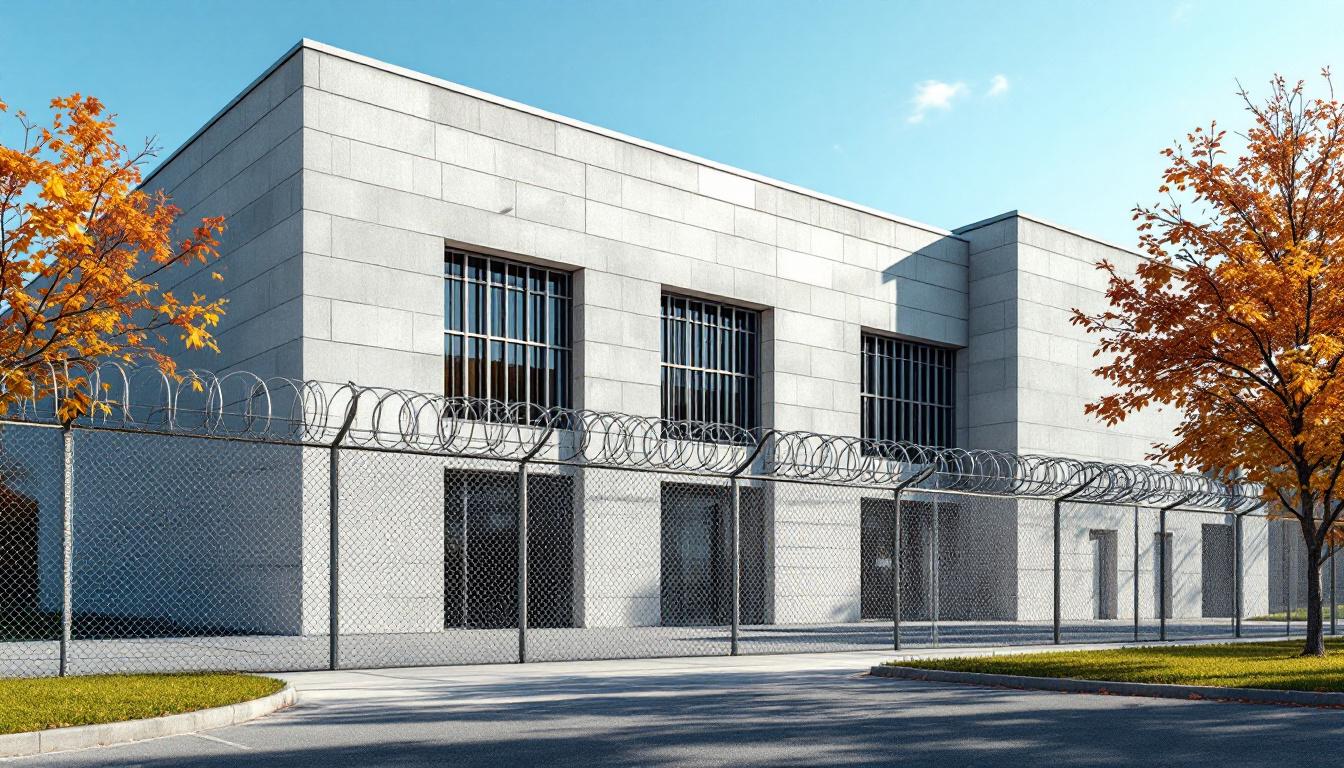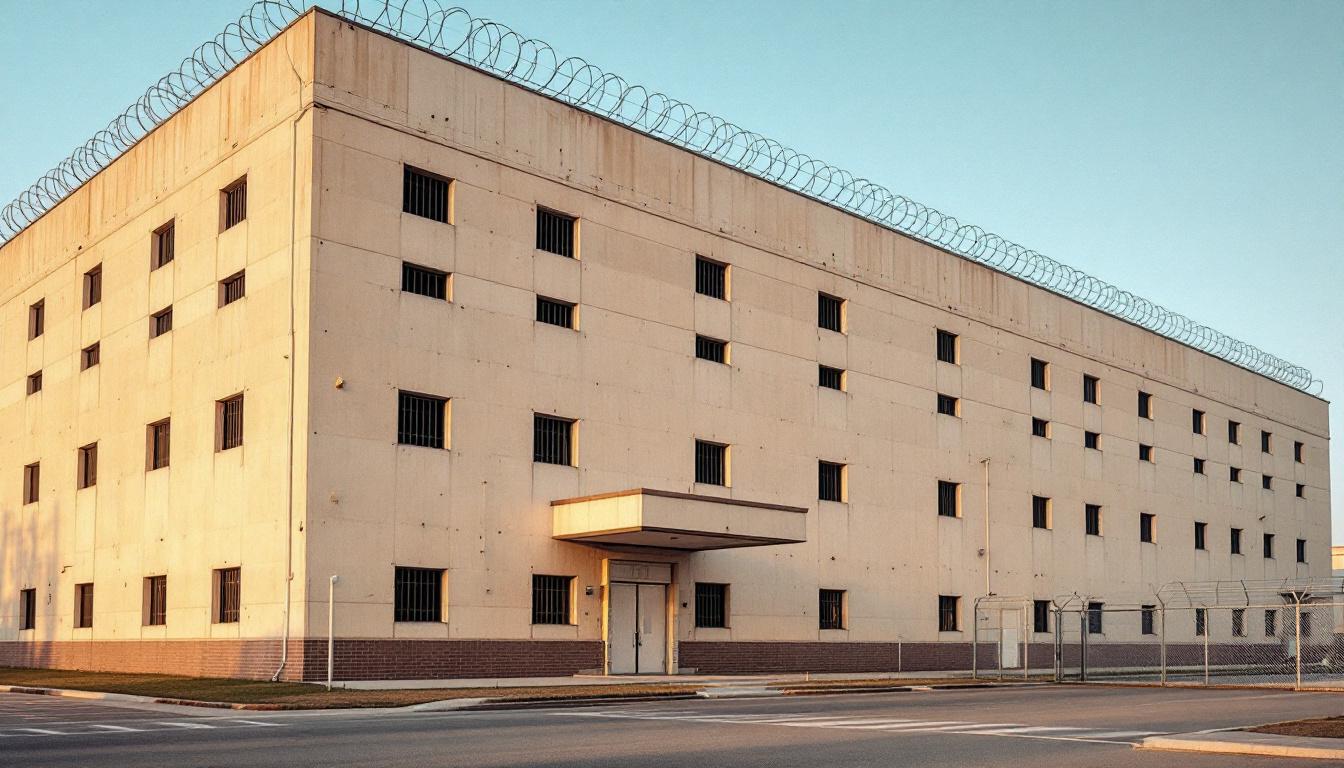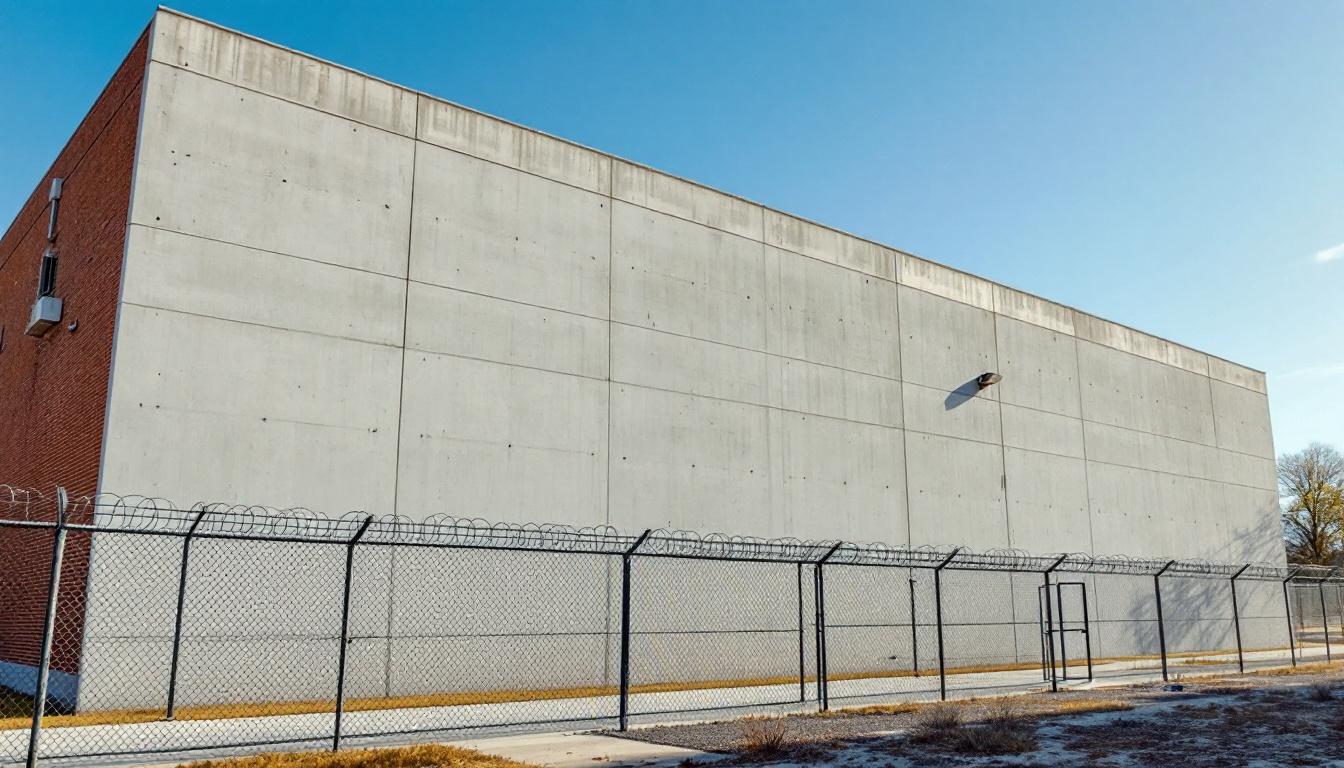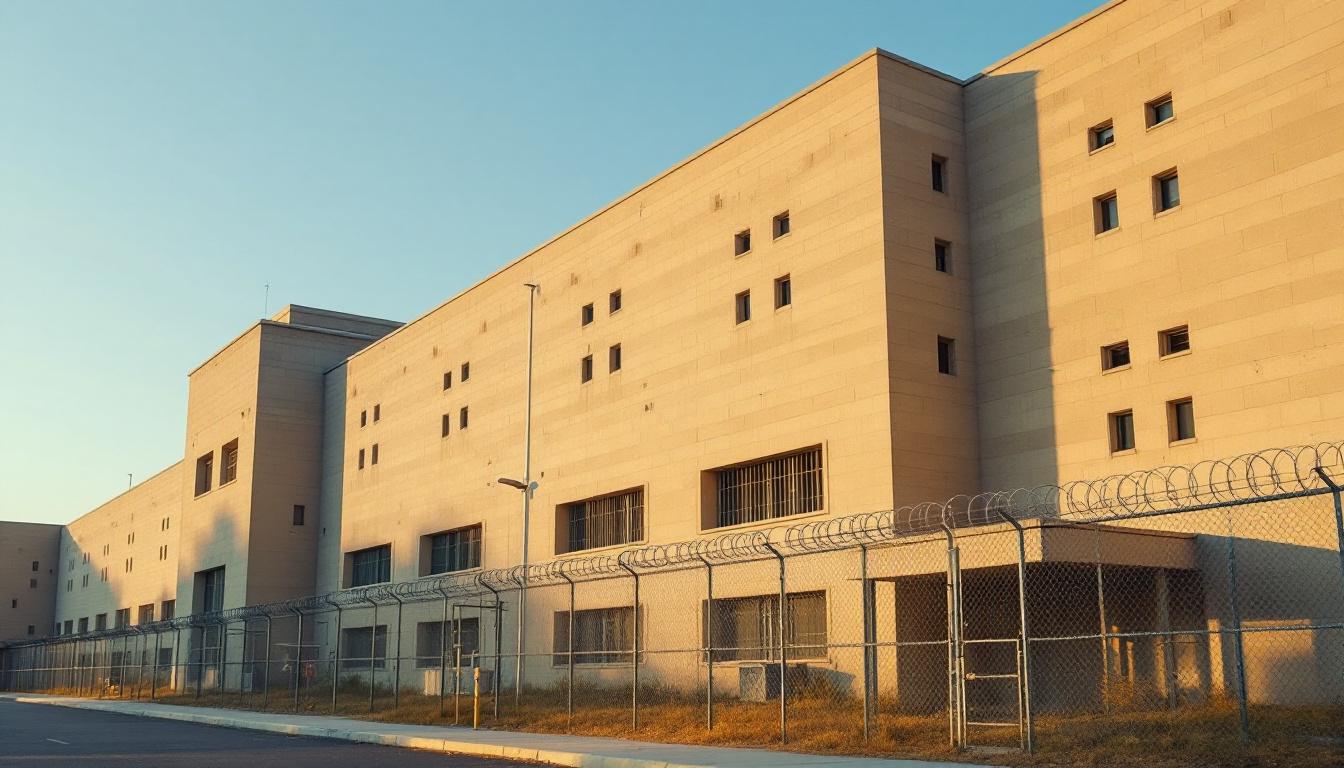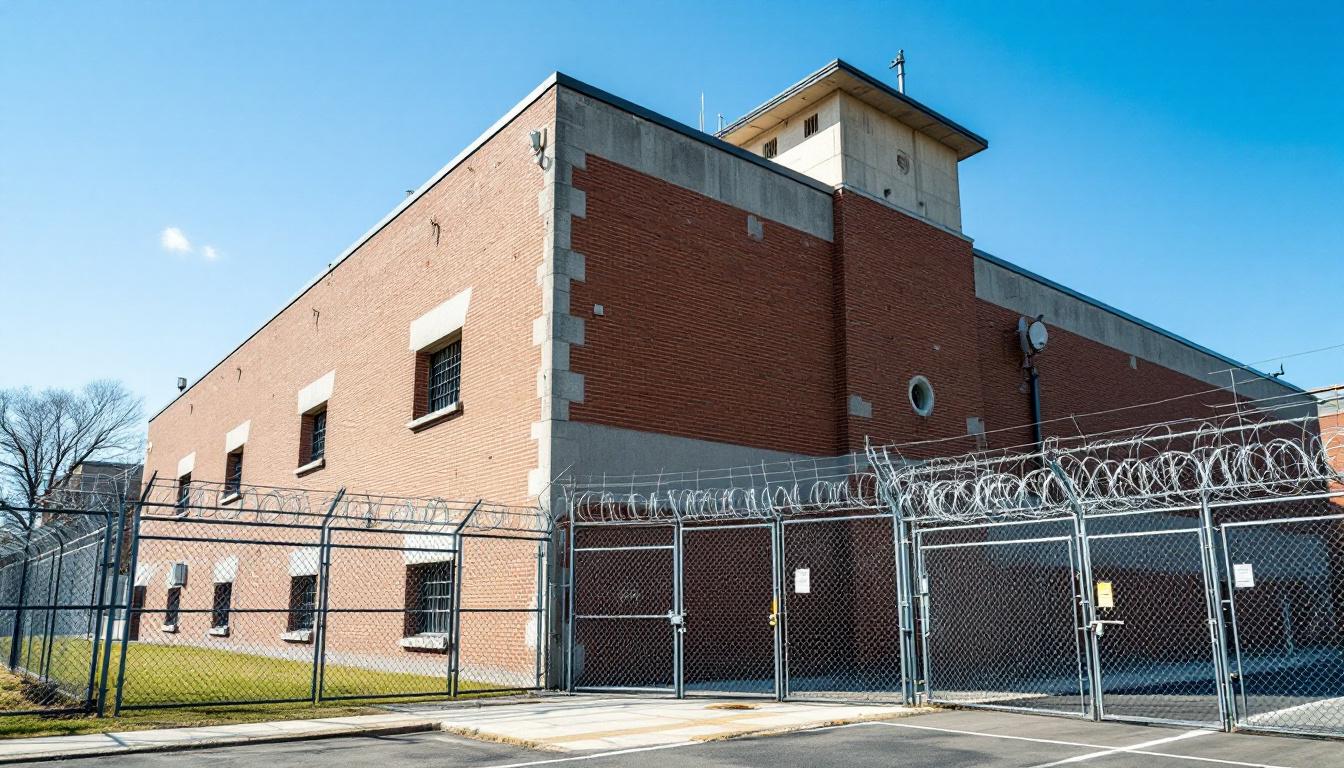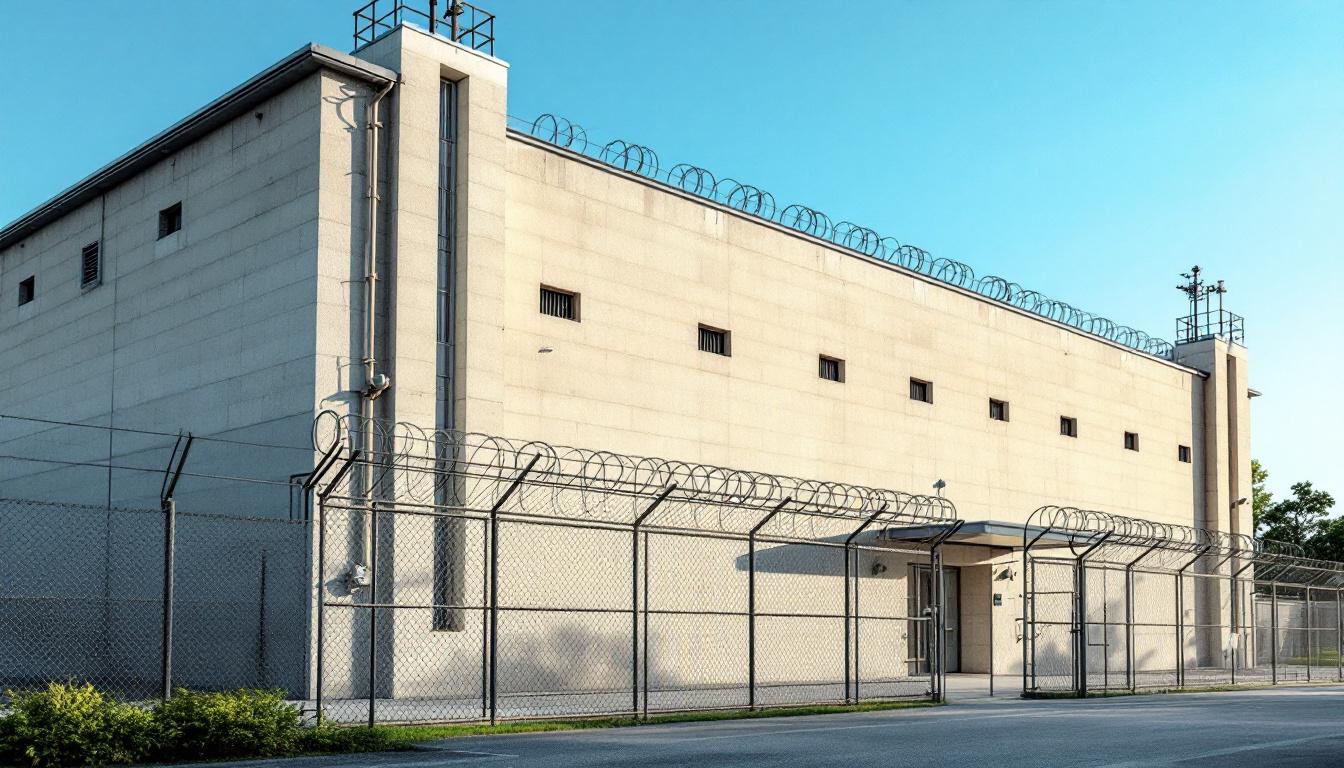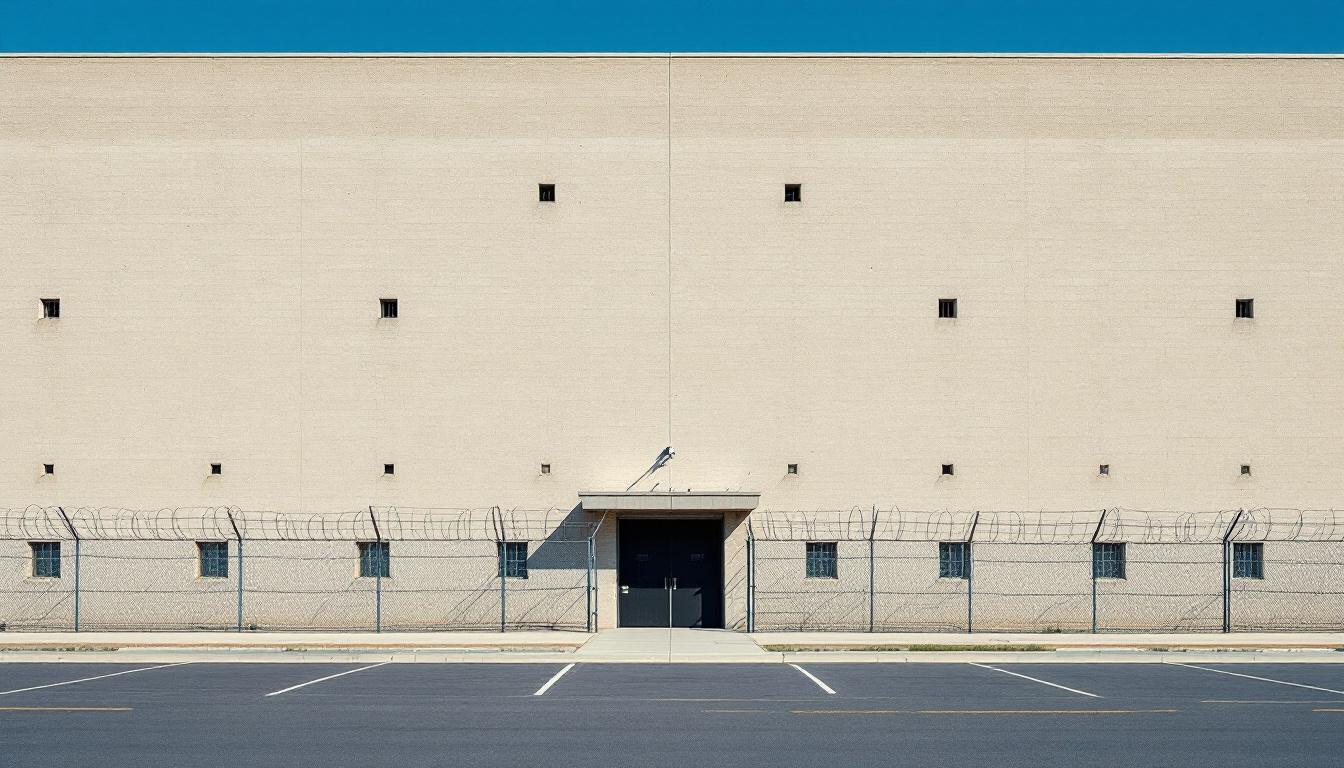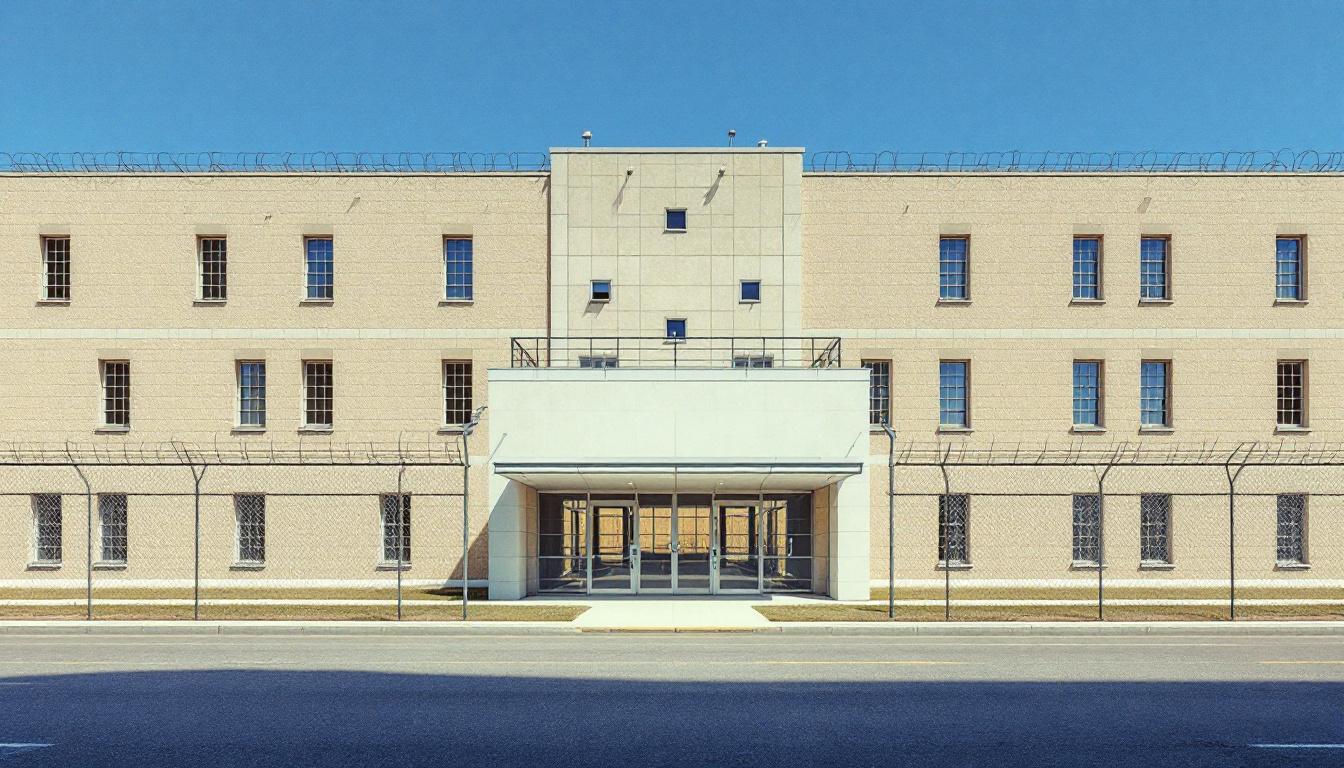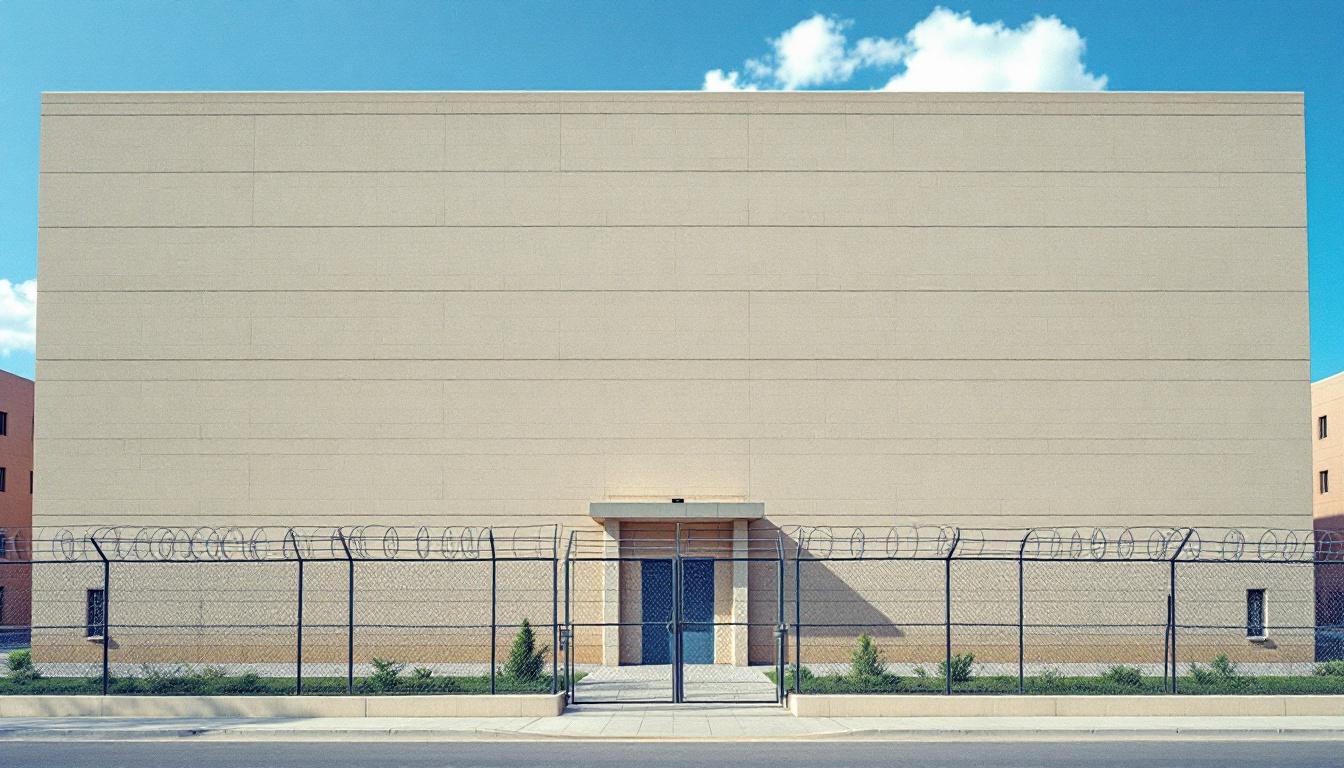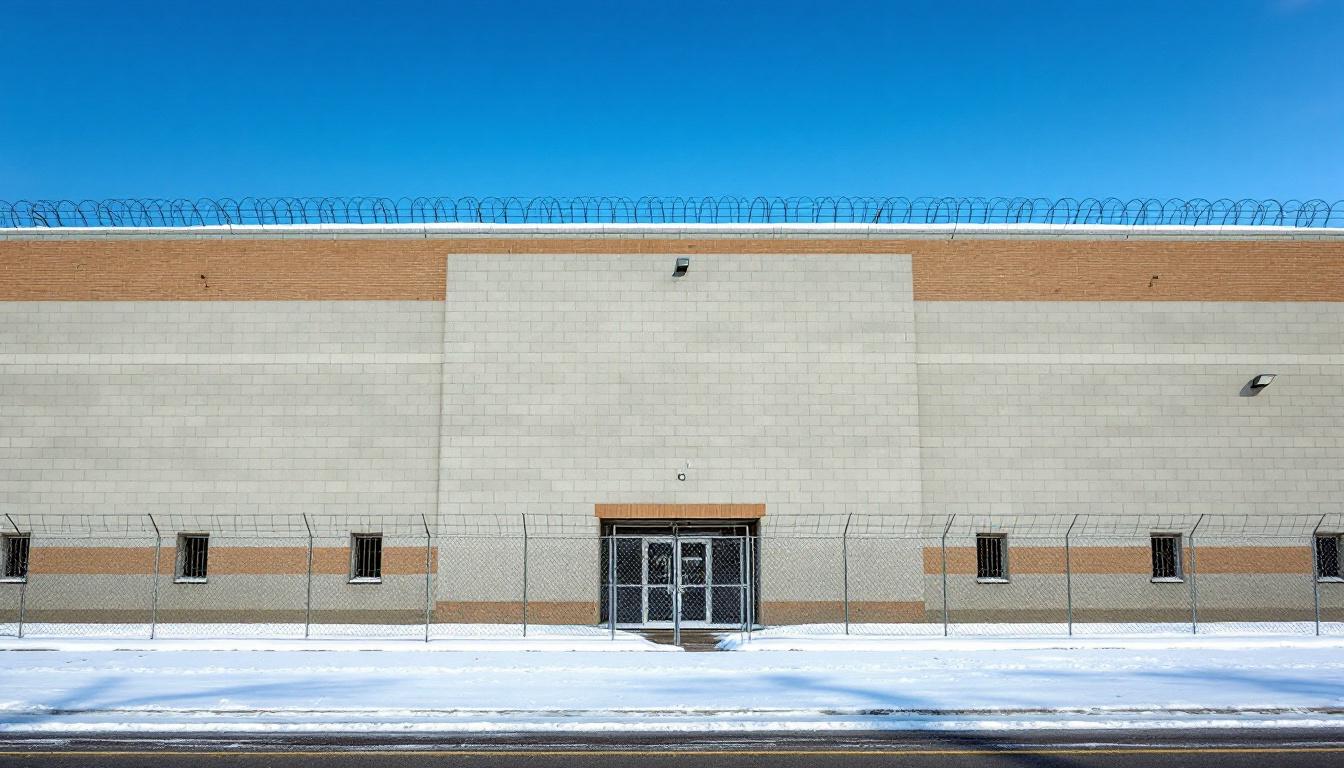
Quick Navigation
How to contact an inmate at Washington County Sheriff's Office
This comprehensive guide will walk you through how to connect with an inmate at Washington County Sheriff's Office. Follow the steps below to find an inmate and send letters and photos:
- Search for the inmate using our search tool below
- Create your account or log in to Penmate
- Write your message (up to 6,000 characters)
- Send instantly - inmates receive printed copies daily
Find an Inmate
Search for an inmate to start communicating today
Tip: You can search by first name, last name, or inmate ID number
To contact a person at Washington County Sheriff's Office start by searching for the person on the official facility website. Perform a search by following these steps:
- Step 1: Enter their first name and last name into the search form and click "Search"
- Step 2: Locate their inmate record
- Step 3: Write down their Inmate ID and any housing information provided
Important! Be sure to enter the person's full name. Nicknames should not be used.
How to Send Messages to Inmates

You can use your phone or computer to send emails, letters, and photos to an inmate. Messages are sent electronically to inmate tablets or kiosks at the facility. If you would like to send a message, start by searching for an inmate at Washington County Sheriff's Office.
Sending Photos and Postcards

A great way to send love and support to a loved one at Washington County Sheriff's Office is to send photos and postcards. It only takes a few minutes to send photos from your phone and it makes a huge difference. You can also mail postcards with words of support and inspiration, or design your own postcard for special moments like birthdays and holidays.
Important! Be sure not to send any explicit photos or they may not be approved by the facility. You can also use a photo printing app like Penmate to make sure your photos are printed at the correct size (4x6 or 3x5) and are mailed according to the rules and regulations of Washington County Sheriff's Office.
Frequently asked questions about Washington County Sheriff's Office
-
How long does it take to deliver a message?
If you're sending an email message your letter is usually delivered within 24-48 hours. For messages sent via mail you should expect delivery within 3-7 days. All messages will need be approved by Washington County Sheriff's Office.
-
How much does it cost to send a message to Washington County Sheriff's Office?
You can send a message free using your phone or mail a message via USPS for the price of a $0.60 stamp and envelope. You can also purchase credits or e-stamps from services starting at $1.99.
-
What services can I use to contact an inmate at Washington County Sheriff's Office?
Penmate
You can use Penmate to send letters and photos to an inmate from your phone. It's an easy way to stay in touch during your loved one's incarceration. Use the inmate locator to find an inmate's location and contact information, then you can send messages within a few minutes.
Securus messaging
Securus may be another option for communicating with an inmate at Washington County Sheriff's Office. You can create a friends and family account and purchase credits to send messages. All messages will be reviewed and must be approved by the facility.
JPay
Some county jails and state prisons may support sending messages with JPay. You must register an account with the system, find your loved one, and purchase stamps to send messages. For some locations you can also attach photos.
Smart Jail Mail
You may also check if Smart Jail Mail is available at Washington County Sheriff's Office. Smart Jail Mail is operated by Smart Communications and has contracted with some state and county jails. After purchasing credits, your messages and photos are sent to the facility, printed out, and then handed out to your loved one.
-
What is the mailing address of Washington County Sheriff's Office?
Mailing address:
Washington County Sheriff's Office
711 3rd St
Chipley, FL 32428
Phone: (850) 638-6111 -
What are the visiting hours at Washington County Sheriff's Office?
Visiting hours at Washington County Sheriff's Office vary by housing unit and security level. Generally, visits are scheduled on weekends and holidays, with some facilities offering weekday visits. Contact the facility directly at (850) 638-6111 or check their website for the current visiting schedule. Visits typically last 30-60 minutes and must be scheduled in advance.
-
What items are prohibited when sending mail to Washington County Sheriff's Office?
Prohibited items typically include: cash, personal checks, stamps, stickers, glitter, glue, tape, staples, paperclips, polaroid photos, musical or blank greeting cards, hardcover books, magazines with staples, and any items containing metal or electronics. Only send letters on plain white paper with blue or black ink. Photos must be printed on regular photo paper (no Polaroids). Always check with Washington County Sheriff's Office for their specific mail policies.
-
How do I send money to an inmate at Washington County Sheriff's Office?
You can send money to an inmate at Washington County Sheriff's Office through several methods: 1) Online using JPay, Access Corrections, or the facility's approved vendor, 2) Money orders mailed directly to the facility with the inmate's name and ID number, 3) Kiosks located in the facility lobby, or 4) Over the phone using a credit or debit card. Fees vary by method, typically ranging from $2.95 to $11.95 per transaction.
-
Can I schedule a video visit with an inmate at Washington County Sheriff's Office?
Many facilities now offer video visitation as an alternative to in-person visits. At Washington County Sheriff's Office, video visits may be available through services like Penmate, Securus Video Connect, GTL, or ICSolutions. Video visits typically cost $10-20 for 20-30 minutes and must be scheduled in advance. You'll need a computer or smartphone with a camera and reliable internet connection. Contact the facility for their specific video visitation policies and approved vendors.
-
What identification do I need to visit an inmate at Washington County Sheriff's Office?
All visitors must present valid government-issued photo identification such as a driver's license, state ID, passport, or military ID. Minors must be accompanied by a parent or legal guardian who can provide the minor's birth certificate. Some facilities require visitors to be on the inmate's approved visitation list, which may require a background check. Contact Washington County Sheriff's Office for specific ID requirements and visitor approval procedures.
-
How can I find out an inmate's release date?
To find an inmate's release date at Washington County Sheriff's Office, you can: 1) Use the online inmate search tool if available, 2) Call the facility's records department, 3) Contact the inmate's case manager or counselor, or 4) Have the inmate provide this information during a call or visit. For privacy reasons, some facilities only release this information to immediate family members.
Facility Overview
Contact Information
Washington County Sheriff's Office711 3rd St
Chipley, FL 32428
Phone: (850) 638-6111
Official Website
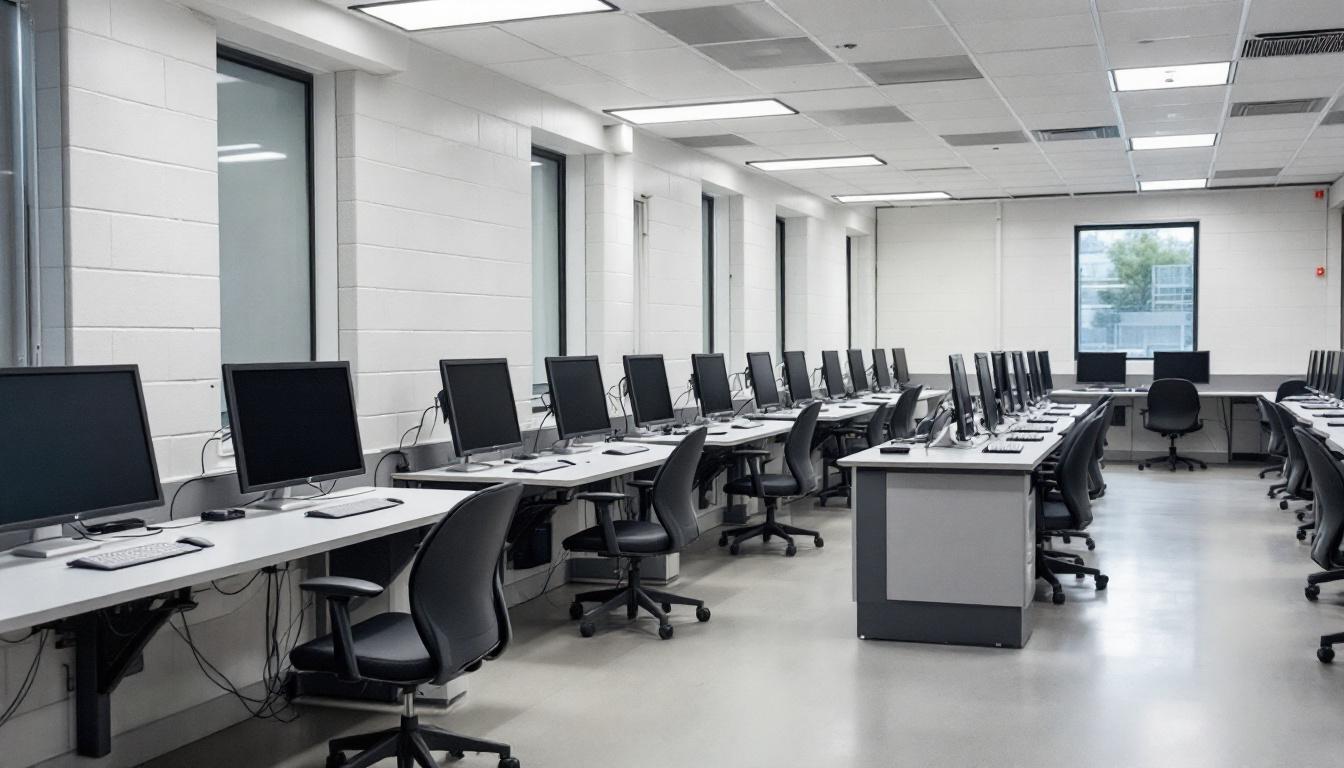
About Washington County Sheriff's Office
Nestled in the heart of Chipley, Florida's rural landscape, Washington County Jail, FL serves as a cornerstone institution within the community's approach to justice and rehabilitation. This FL correctional facility operates with a philosophy that views incarceration as an opportunity for meaningful change, emphasizing programs that prepare individuals for successful reintegration into the broader Washington County community. The facility typically maintains strong connections with local organizations and service providers, creating pathways that extend beyond the facility's walls to support long-term positive outcomes for residents and their families.
The jail's approach to offender management centers on addressing the underlying factors that often contribute to criminal behavior, with residents services that may include educational opportunities, substance abuse counseling, and vocational training programs. Staff members generally work to create an environment where individuals can develop the skills and mindset necessary for productive citizenship upon release. The facility often collaborates with community partners to provide resources such as job placement assistance, mental health support, and family reunification services, recognizing that successful rehabilitation requires a comprehensive support network.
Washington County Jail's role within Florida's correctional system reflects the unique needs of rural communities, where personal connections and community accountability play vital roles in the justice process. The county jail typically houses individuals awaiting trial as well as those serving shorter sentences, allowing for more personalized attention and community-based programming than might be possible in larger facilities. This community-centered approach often includes maintaining family connections through visitation programs and communication services, understanding that strong family ties frequently serve as crucial factors in reducing recidivism and supporting successful reentry into Chipley and the surrounding areas.
Programs & Services
Educational initiatives form the cornerstone of rehabilitative efforts, with comprehensive literacy programs designed to address fundamental skill gaps that often contribute to recidivism. Computer literacy courses typically provide residents with essential digital competencies necessary for successful reintegration into an increasingly technology-dependent society, while GED preparation programs may deliver structured pathways toward high school equivalency certification. These educational foundations often serve as stepping stones to more advanced learning opportunities, fostering intellectual growth and expanding employment prospects upon release.
Therapeutic interventions address the underlying behavioral patterns and dependencies that frequently precipitate criminal activity. Substance abuse treatment initiatives may offer both individual counseling sessions and group therapy formats, allowing residents to explore addiction recovery through multiple therapeutic modalities. These programs often incorporate evidence-based treatment approaches that help participants develop coping mechanisms, recognize triggers, and build sustainable recovery strategies. In addition to this, mental health support services typically complement substance abuse treatment by addressing co-occurring disorders that may complicate the rehabilitation process.
Work release programs represent a critical transitional component, enabling eligible residents to maintain employment while serving their sentences. These initiatives may deliver structured opportunities for residents to demonstrate responsibility, earn income to support family obligations, and establish professional references that prove invaluable during the reentry process. The program often includes supervision protocols that balance accountability with the practical necessity of preparing individuals for independent living, creating a bridge between incarceration and full community reintegration.
Daily Life & Visitation
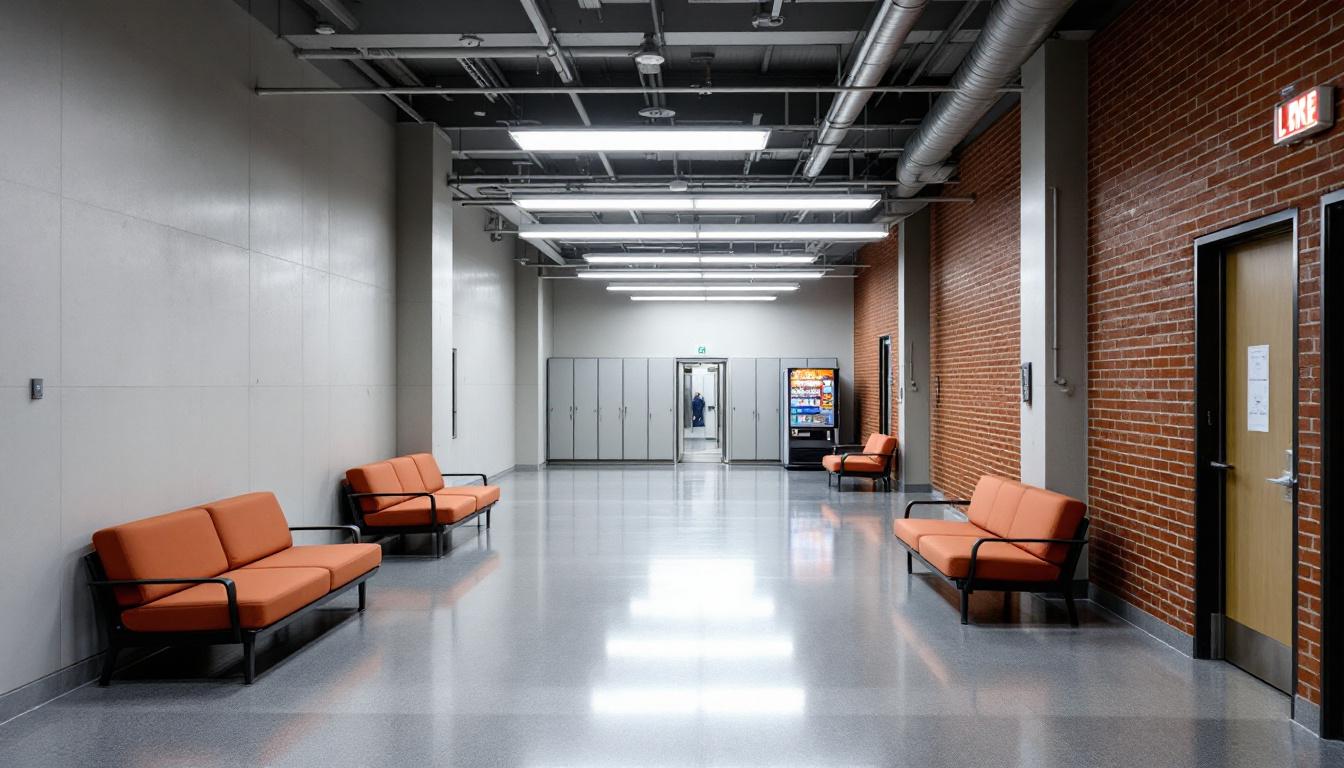
The carefully orchestrated rhythm of daily activities now shapes every aspect of life within the facility, with residents following schedules that begin before dawn and continue through structured evening hours. Each day unfolds with predictable patterns that typically include designated times for meals, work assignments, educational programming, and recreational activities, creating a framework that many residents find helps them maintain focus and purpose. This systematic approach regularly delivers stability through consistent routines, allowing individuals to develop healthy habits and prepare for their eventual return to the community.
Living accommodations within the housing units generally feature dormitory-style arrangements or smaller cells, depending on the resident's classification level and security requirements. Residents typically share common areas for dining, where meals are served at scheduled intervals throughout the day, usually including breakfast, lunch, and dinner prepared in the facility's kitchen. Personal property allowances may include basic hygiene items, limited clothing, and approved reading materials, while commissary services often provide opportunities for residents to purchase additional approved items using funds from their accounts.
In addition to this structured daily framework, residents usually have access to various programming opportunities that may include educational classes, vocational training, and counseling services designed to support rehabilitation goals. Recreation and exercise periods typically occur in designated areas, allowing residents to maintain physical fitness and engage in supervised activities with others. Family connections remain important through scheduled visitation periods and telephone privileges, which generally operate within established guidelines and time restrictions. Work assignments within the facility often include kitchen duties, maintenance tasks, and cleaning responsibilities, providing residents with opportunities to develop job skills while contributing to the facility's daily operations.
Ready to Connect?
Start communicating with your loved one today
Search for an Inmate
